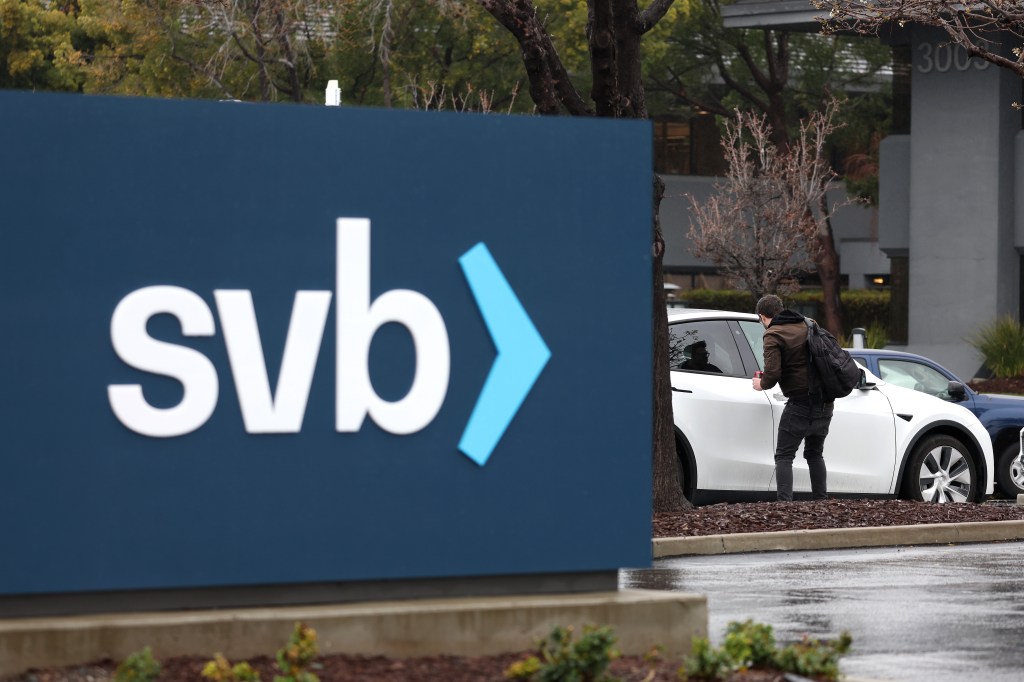Credit unions and other self-described ethical banks are emailing their customers to reassure them they have money and are not at risk of failing like Silicon Valley Bank, often throwing shade at banks that cater to single industries or chase fads like cryptocurrencies.
SVB was the subject of an internet-fueled bank run amid fears that rising interest rates were hitting the bank especially hard because of its disproportionate exposure to startups. The Federal Reserve has been raising interest rates to try and slow inflation. Those rising interest rates affect most banks in a variety of ways that are both good and bad for their bottom lines, often evening out or even making banks financially stronger. But SVB, during recent flush times fueled by rock-bottom interest rates during COVID that flooded the startup market with capital, bought a ton of bonds and mortgage-backed securities at low interest rates which have since tanked in value as interest rates rose. Investors became concerned the bank didn’t have enough money to pay out withdrawals. A good ol’ fashioned bank run ensued.
Videos by VICE
What transpired at SVB has essentially nothing to do with the roughly 5,000 credit unions in the U.S. except for the fact that bank runs are a social psychology event as much as a financial one and a bank run at a single bank risks a bank run at other banks, too, irrespective of the actual financial health of those other banks. As a result, many banks, especially smaller ones, are reassuring their customers that they are not like SVB, that they are in fact financially sound, and everything is fine.
For example, San Diego County Credit Union’s President and CEO Teresa Campbell sent an email, which is also available via a banner notification on the credit union’s website, titled “SDCCU’s Strong Financial Position.” Among other points, Campbell notes “SDCCU’s membership base of over 437,000 persons is diverse and not concentrated within or reliant upon any one industry or segment of the market.” (Emphasis hers.) Campbell also said, “Recent news reports have noted isolated bank challenges related to an institution’s primary reliance upon and concentration within select industries such as cryptocurrency, the tech sector and start-up companies, which ultimately resulted in their instability. We are pleased to confirm that SDCCU has no involvement in or reliance upon the cryptocurrency market, and no investment or deposit concentration, or a particular reliance upon the tech sector or start-up companies.”
Similarly, San Francisco Fire Credit Union’s President and CEO Kathy Duvall sent a combination everything-is-fine-slash-welcome-SVB-refugees email. “Some customers of affected banks have been contacting us, seeking information and reassurance during this time,” Duvall wrote. “Let me take this opportunity to remind you that we have always been a stable financial institution and our prudent approach in providing safe, reliable financial products and services to our members. During the pandemic, we remained open for business, and were recognized as the #1 credit union to join during the Occupy Wall Street movement of 2011.”
Both emails from SDCCU and SFCU included links to recent annual reports and regulatory filings illustrating their financial stability.
Many of these emails sent by other credit unions have not been publicly posted, but some customers have tweeted about receiving them.
It is not only credit unions reassuring their customers that they’re run more competently than SVB. Amalgamated Bank, which is not a credit union but like many credit unions emphasizes social and environmental responsibility, emailed customers Monday morning to highlight its recent 10-K filing with the Securities and Exchange Commission that “Amalgamated Bank’s performance throughout the rapport was strong, particularly in areas of liquidity and capitalization.” Amalgamated was founded by labor unions, and notes on its website that it is a bank that “stands with labor.” The bank added “we will never chase fads and will not take needless risks at the expense of the trust we’ve built with you since 1923.”




